Heart transplantation is a life-saving procedure for patients suffering from end-stage heart failure or severe coronary artery disease. This blog will explore the cost, success rate, and best hospitals for heart transplant surgery in India. As one of the most complex & critical medical surgeries, heart transplant costs can significantly concern patients and their families. We will provide a comprehensive overview of expenses, including pre-operative tests, surgery, post-operative care, and follow-up appointments.
Additionally, we will discuss the success rate of heart transplant surgeries in India, which has improved considerably over the last few decades thanks to advancements in medical technology and surgical techniques. Lastly, we will highlight some of the top hospitals in India that specialize in heart transplant procedures, known for their state-of-the-art facilities, experienced medical professionals, and exceptional patient care. By the completion of this blog, you will have a better understanding of the heart transplant landscape in India, empowering you to make informed decisions about your healthcare journey.
Read More: Impactguru hospital finder tool India
Table of Contents
- Cost Of Heart Transplant In India
- Factors Affecting The Heart Transplant Cost In India
- Heart Transplant Success Rate In India
- 10 Best Heart Transplant Hospitals In India
- 1) Fortis Malar Hospital, Chennai
- 2) Apollo Hospitals, Chennai
- 3) Medanta – The Medicity, Gurgaon
- 4) Narayana Health City, Bangalore
- 5) Kokilaben Dhirubhai Ambani Hospital, Mumbai
- 6) Manipal Hospital, Bangalore
- 7) Max Super Speciality Hospital, Saket, New Delhi
- 8) Gleneagles Global Health City, Chennai
- 9) Sir Ganga Ram Hospital, New Delhi
- 10) BLK Super Speciality Hospital, New Delhi
- Conclusion
Cost Of Heart Transplant In India
The price of a heart transplant in India can differ significantly based on several factors, such as the hospital, the surgeon’s experience, geographical location, and any additional medical treatments required. On average, the approximate cost of a heart transplant in India ranges from INR 20 lakhs to INR 30 lakhs (approximately $26,000 to $39,000). It is vital to note that it’s just a general estimate, and individual cases may differ.
The cost breakdown typically includes pre-operative tests, surgery, post-operative care, and follow-up appointments. Here’s a rough outline of the expenses involved:
1. Pre-operative tests: These tests are crucial to assess the patient’s overall health and compatibility with the transplant. The cost of these tests can go high as INR 1 lakh to INR 2 lakh.
2. Surgery: Heart transplant surgery is the most significant expense, accounting for a large portion of the total cost. The surgery cost can range from INR 15 lakhs to INR 22 lakhs.
3. Post-operative care: Patients require intensive care and monitoring after the surgery, which can last several weeks. The cost of post-operative care can range from INR 3 lakhs to INR 5 lakhs.
4. Follow-up appointments: Regular follow-up appointments are important to monitor the patient’s health progress and ensure the success of the heart transplant. The cost of these appointments can vary depending on the frequency and duration of the weekly/monthly visits.
It is essential to consider that these costs may not include additional expenses such as medications, rehabilitation, and any potential complications that may arise. It is always advisable to contact the chosen hospital and surgeon for a more accurate cost estimate tailored to the patient’s specific needs.
Factors Affecting The Heart Transplant Cost In India
1. Type of Heart Transplant: The heart transplant price in India is based on the type of heart transplant needed. If a patient requires a heart-lung transplant, it’s higher than a single heart transplant.
2. Location of Surgery: The cost of a heart transplant in India depends on the location of the surgery. The cost of a heart transplant in a metro city is relatively higher than in a smaller city or town.
3. Type of Hospital: The cost of a heart transplant in India also depends on where the surgery will be performed. Private hospitals generally charge more than government hospitals.
4. Experience and Reputation of Surgeon: The cost of a heart transplant in India also depends on the surgeon’s experience and reputation performing the procedure. A highly experienced and reputed surgeon will generally charge more than a less experienced one.
5. Post-Operative Care: The cost of a heart transplant in India also depends on the post-operative care that the patient requires. Post-operative care can include follow-up visits, medications, and other necessary treatments.
6. Insurance Coverage: The cost of a heart transplant in India also depends on the insurance coverage available. Some medical insurance policies cover part or all of the cost of a heart transplant.
7. Waiting List: The cost of a heart transplant in India also depends on the waiting list for the procedure. If the heart patient is on a waiting list for a donor’s heart, the cost of the procedure may be lower than if the patient can get a donor’s heart immediately.
Heart Transplant Success Rate In India
Heart transplantation is a complex surgical procedure that involves replacing a diseased or failing heart with a healthy donor heart. Heart transplantation has steadily gained momentum in India since the first successful transplant in 1994. Over the years, advancements in surgical techniques, immunosuppressive medications, and post-operative care have improved success or survival rates.
While there is limited data on the exact success rate of heart transplants in India, some studies and reports suggest that the outcomes are comparable to international standards. As per a new medical publication- Indian Journal of Thoracic and Cardiovascular Surgery, the 1-year survival rate for heart transplant patients in India is around 80-85%. This is similar to the success rates published in the United States and Europe.
Several factors contribute to the success of heart transplants in India:
1. Skilled Surgeons: India has a pool of highly skilled and experienced cardiac surgeons trained in leading medical institutions worldwide.
2. Advanced Medical Infrastructure: Many hospitals in India have state-of-the-art facilities and technology, enabling them to perform complex surgeries like heart transplants.
3. Post-Operative Care: Comprehensive post-operative care, including immunosuppressive therapy and regular follow-ups, is crucial for the long-term success of heart transplants. Indian hospitals have made significant strides in this area, ensuring better outcomes for patients.
4. Affordability: Heart transplants in India are relatively more affordable than in other countries, making them accessible to a larger population.
However, some challenges impact the overall success rate of heart transplants in India:
1. Organ Availability: The demand for donor’s hearts far exceeds the supply in India, leading to long waiting times for patients needing a transplant.
2. Organ Donation Awareness: There needs to be more awareness about organ donation in India, which contributes to the shortage of donor organs.
3. Regional Disparities: The availability of advanced medical facilities and skilled surgeons varies across the country, leading to disparities in the success rates of heart transplants.
In conclusion, the success rate of heart transplants in India is comparably good to international standards; there is still room for improvement. Increasing organ donation awareness, addressing regional disparities, and further advancements in medical technology can help improve the overall success rate of heart transplants in India.
10 Best Heart Transplant Hospitals In India
India is one of the best yet prominent destinations for heart transplants worldwide due to its advanced medical technology, highly qualified surgeons, and affordability. The medical technology used in India is world-class and state-of-the-art. This includes the most advanced imaging and monitoring equipment available. This ensures that heart transplant operations are performed accurately and precisely.
The surgeons in India also have exceptional qualifications, with many having received their training from some of the renowned health institutions in the world. Many of these surgeons have extensive experience in performing successful heart transplant operations. Finally, India is an affordable destination for heart transplants. The heart transplant price in India is a fraction of the cost in other countries. This makes India a favorable option for those seeking a heart transplant, as it allows them to receive the same high-quality medical care at a fraction of the cost.
Here is the list of the 10 best heart transplants hospitals in India:
1) Fortis Malar Hospital, Chennai
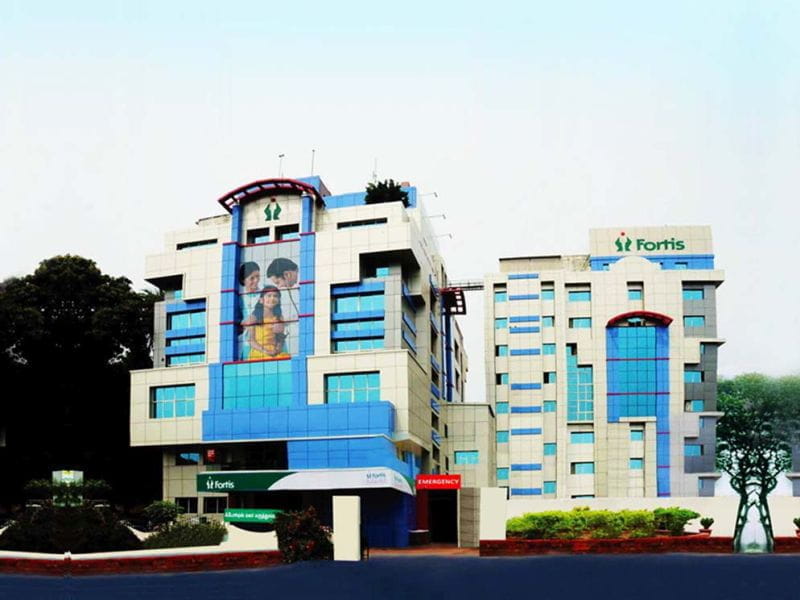
Fortis Malar Hospital, Chennai, is a leading provider of advanced medical care and treatment for heart transplantation in India. It is renowned for its pioneering and comprehensive approach to heart transplant surgery. The hospital has the highest number of heart transplant surgeries in the country. It is backed by the latest medical technologies and expertise of the best cardiac surgeons in the country.
Fortis Malar Hospital has achieved several milestones in cardiac surgery, including performing the first successful heart transplant in the country in 2008. Since then, the hospital has performed several life-saving transplants, with a success rate of over 95%. The hospital has also achieved international recognition for its advanced treatments and techniques and is a leader in the field of heart transplantation in India.
The hospital has made tremendous strides in heart transplantation thanks to the dedicated efforts of its doctors, nurses, and other healthcare professionals. The hospital’s patient care is at par with the best in the world, and its expertise in the field of heart transplantation is also widely appreciated.
2) Apollo Hospitals, Chennai
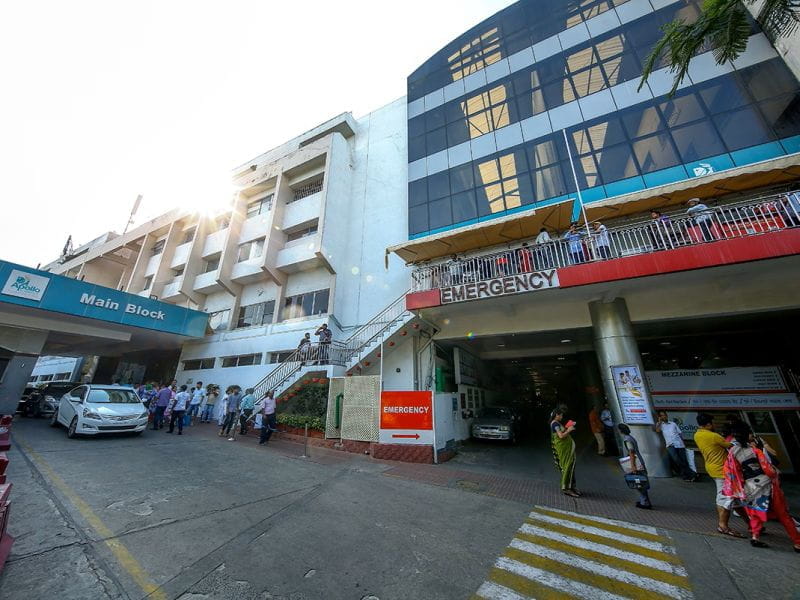
Apollo Hospitals Chennai is a renowned multi-specialty hospital located in Chennai, India. It is known for its advanced modern medical techniques, expertise, and facilities. It is well-equipped with advanced medical technology and has a group of highly qualified surgeons and physicians.
Apollo Hospitals Chennai has been performing successful heart transplants since 1999. It has performed over 400 heart transplants, and its success rate is 97 percent. It also has a dedicated heart transplant team, which is responsible for pre and post-operative care of the patient. The hospital also has an excellent infrastructure, which includes an advanced cardiac operation theatre, a patient monitoring system, and an intensive care unit.
Apollo Hospitals Chennai has also been recognized for its achievements in the medical field. The prestigious Joint Commission International accreditation has been awarded for its quality healthcare services. It also has been recognized by the Indian government for its excellence in medical care. Apollo Hospital is also a part of the World Health Organization’s Global Initiative for Essential Surgical Care (GIESC). In addition, Apollo Hospitals Chennai has also been recognized for its success in transplant surgery. The National Accreditation Board has awarded it the Best Transplant Centre of India for Hospitals and Healthcare Providers (NABH).
3) Medanta – The Medicity, Gurgaon
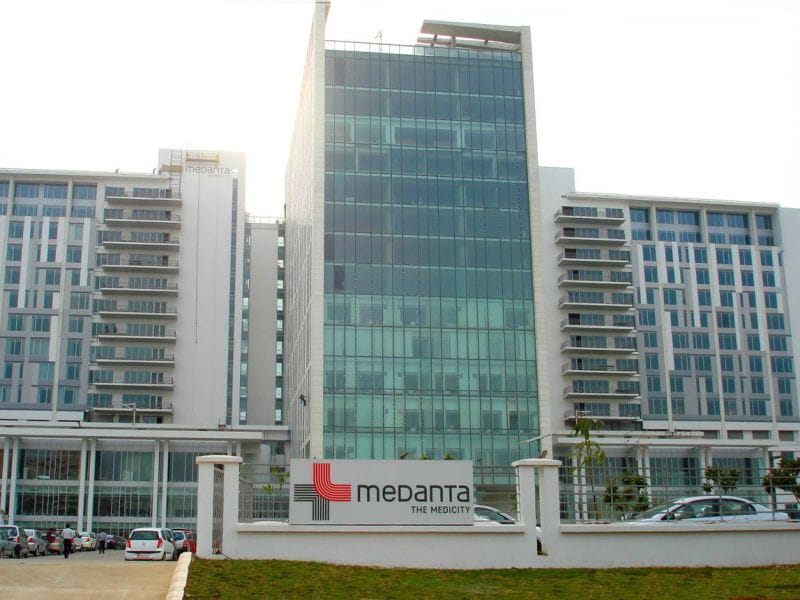
Medanta – The Medicity is a multi-specialty medical hospital in Gurgaon, India. It was founded in 2009 by Dr. Naresh Trehan, one of India’s leading cardiothoracic surgeons. The institute has various medical and surgical disciplines, focusing on cardiac sciences. It has some of the most modern technology and equipment available in cardiology. It is the only institute in India capable of a complete range of heart transplantation and surgeries.
Medanta has achieved several milestones in heart transplantation and cardiac care, including being the first medical institute in India to perform an allogeneic heart transplant, the first to perform two simultaneous bilateral heart transplants, and the first to perform combined heart-lung transplantation. It has also performed other complex heart surgeries, such as left ventricular assist devices, pediatric and adult heart transplants, and various surgical treatments for valve diseases.
Medanta’s team of experts has also researched the impact of lifestyle and environmental factors on cardiac health. The institute has a comprehensive program of patient education, and its experts have conducted numerous awareness campaigns to educate the public about heart health and precautionary measures to restrict the risk of heart disease.
Medanta – The Medicity is a world-class medical institution that provides all patients with the highest quality care and treatment. Its achievements in heart transplantation and cardiac care have significantly advanced the medical field in India and around the world.
4) Narayana Health City, Bangalore
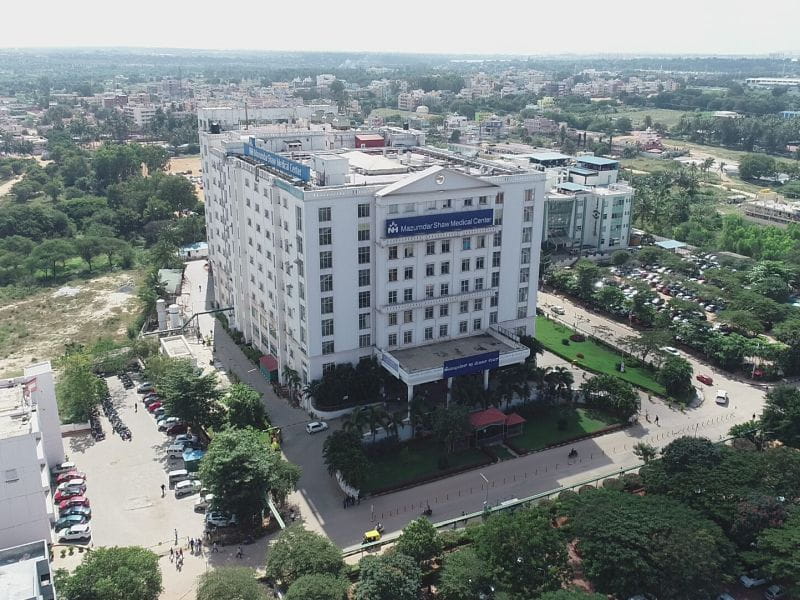
Narayana Health City, Bangalore, is one of India’s leading centers for advanced medical care, including heart transplants. It is a comprehensive super-specialty healthcare facility providing comprehensive medical care in cardiology, angioplasty, cardiac surgery, interventional cardiology, neurology, neurosurgery, orthopedics, oncology, transplantation, general and general and laparoscopic surgery, and other specialties.
The hospital has advanced medical technology, including the first hybrid operating theatre in India and the country’s first dedicated cardiac interventional suite. It also has a dedicated heart transplant unit with a world-class team of surgeons, cardiologists, and other healthcare professionals.
Narayana Health City has achieved numerous milestones in heart transplants, including being the first hospital in India to perform a successful heart transplant on an adult patient in 2015. It has since then performed over 200 successful heart transplants, making it one of the most experienced and successful heart-transplant centers in the world. The hospital has also been known as one of the world’s best centers for heart transplants, with a survival rate of over 95%. The hospital has also received numerous awards and accolades, including the National Award for Excellence in Cardiac Transplantation and the Asia Pacific Award for Excellence in Cardiac Transplantation.
5) Kokilaben Dhirubhai Ambani Hospital, Mumbai
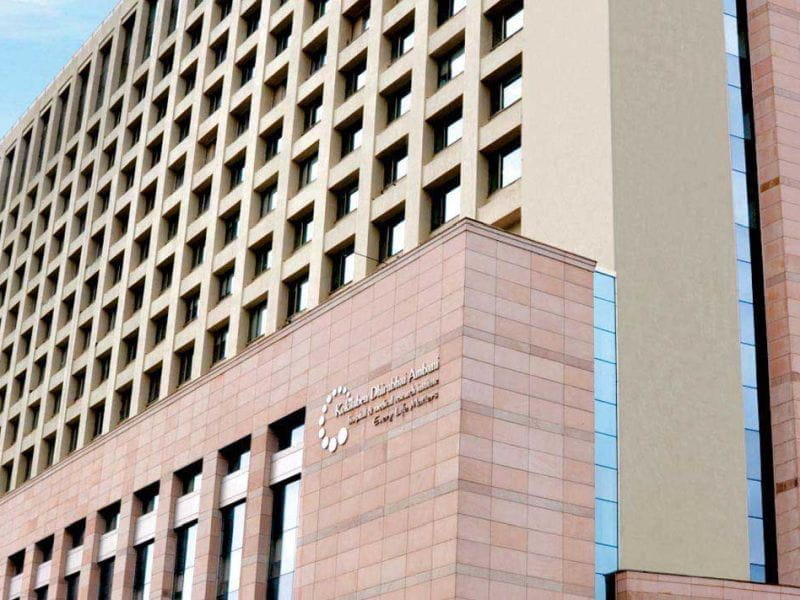
Kokilaben Dhirubhai Ambani Hospital is a multi-specialty tertiary care hospital in Andheri West in Mumbai, India. It was founded in 2009 by Kokilaben Ambani, the wife of the late Indian business tycoon Dhirubhai Ambani. The hospital is a part of the Reliance group and offers medical services in various specialties, including cardiology, neurology, orthopedics, and oncology.
The hospital is one of India’s leading heart transplant centers and has successfully performed more than 100 heart transplants till date. It has a dedicated Cardiac Transplant Unit and a team of highly experienced cardiologists and surgeons. The hospital is one of the few prominent hospitals in India that offers minimally invasive cardiac surgery and is recognized for its expertise in cardiac care. The hospital has an advanced ICU and a dedicated Cardiac Cath Lab facility.
Kokilaben Dhirubhai Ambani Hospital is also well known for its research and development activities in cardiology. It has published over 80 papers in peer-reviewed journals and has conducted numerous conferences and workshops. The hospital also has a solid commitment to providing quality healthcare at an affordable cost. The hospital has been awarded the National Quality Certification for its excellent clinical services.
6) Manipal Hospital, Bangalore
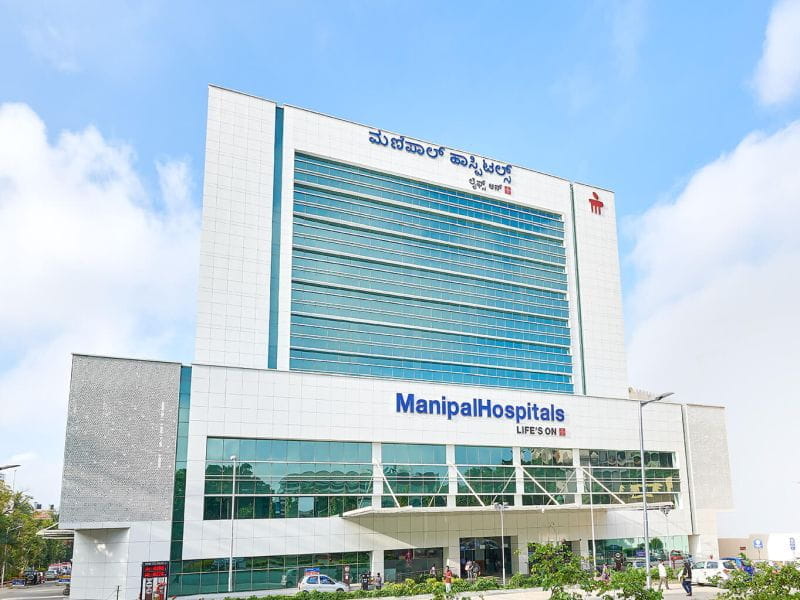
Manipal Hospital is one of the leading multi-specialty tertiary care hospitals in India. It is renowned for its cardiac care, with a comprehensive range of preventive to corrective cardiac care services. Manipal Hospitals, Bangalore, has a dedicated Heart Transplant Unit, which offers comprehensive care for patients with advanced heart failure and those requiring heart transplants. The hospital has achieved several milestones in cardiology and cardiac surgery, including the first successful heart transplant in Karnataka in 2017.
The hospital provides a full range of services, including advanced diagnostic tests, interventional cardiology, cardiac surgery, and post-operative care. The hospital has a team of qualified cardiologists, cardiac surgeons, intensivists, and anesthesiologists who provide personalized patient care and treatment. The hospital has a dedicated team of experts committed to delivering quality care and excellent patient outcomes.
The hospital has an impressive track record of successful heart transplants, with over 500 transplants. It has been accredited by the NABH for its excellence in healthcare delivery and patient safety. Manipal Hospitals, Bangalore, is also part of the “International Society for Heart and Lung Transplantation.”
7) Max Super Speciality Hospital, Saket, New Delhi
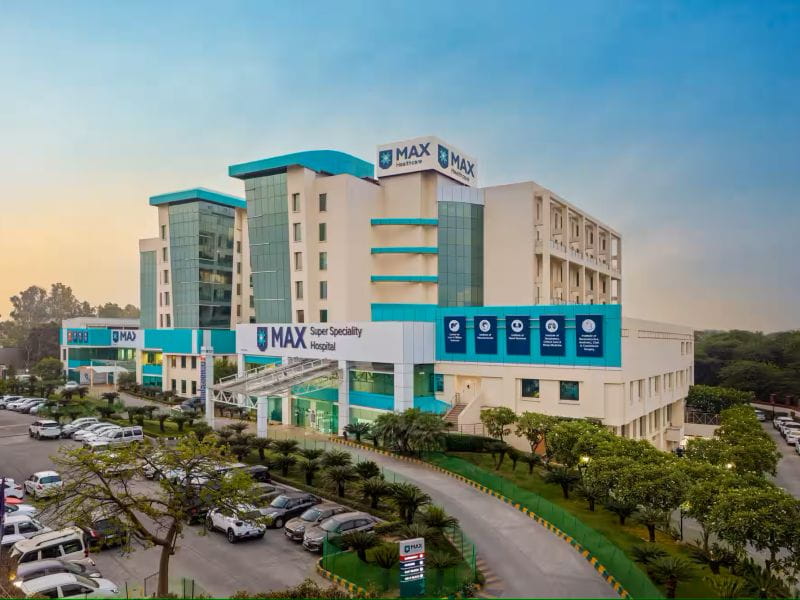
Max Super Speciality Hospital, Saket, New Delhi, is a highly advanced multi-specialty hospital that offers comprehensive, world-class healthcare services. It is a 600-bedded hospital with a dedicated medical professional team, cutting-edge technology, and state-of-the-art infrastructure.
Max Super Speciality Hospital, Saket, New Delhi, is a leader in providing advanced healthcare services for heart transplantation. The hospital has highly skilled cardiac surgeons who perform various complex heart surgeries, including heart transplants. The hospital has performed over 100 heart transplants successfully, and the success rate of these surgeries is over 95%. The hospital also has a comprehensive heart transplant program, including comprehensive pre-transplant evaluation, diagnosis and treatment, post-transplant care, and long-term follow-up. The hospital also has a dedicated group of highly trained and experienced cardiac anesthesiologists, perfusionists, and well-trained nursing staff.
Max Super Speciality Hospital, Saket, New Delhi, also provides access to advanced technologies such as 3D echocardiography, cardiac CT, cardiac MRI, and advanced coronary angiography. The hospital also has a well-equipped medical laboratory for laboratory investigations and advanced imaging. The hospital has a team of dieticians and nutritionists who work closely with the transplant team to ensure that the patient receives proper nutrition to support their recovery.
Max Super Speciality Hospital, Saket, New Delhi, is also one of the few renowned hospitals in India to be accredited by the JCI- Joint Commission International. This recognition proves the hospital’s dedication to offering the best quality care to its patients.
8) Gleneagles Global Health City, Chennai

Gleneagles Global Health City, Chennai, is an award-winning healthcare facility. It has achieved several milestones in providing world-class medical care for the past decade. It is one of the few prominent hospitals in India to receive NABH accreditation for its clinical excellence. It is also the first healthcare facility in India to receive the prestigious JCI accreditation for providing the highest quality of patient care.
In terms of heart transplants, Gleneagles Global Health City, Chennai, is one of the leading heart transplant centers in India and has performed over 500 successful heart transplants in the past decade. The hospital has achieved remarkable success in pediatric heart transplants, with a dedicated team of surgeons offering comprehensive care for infants and young children.
The hospital also offers comprehensive medical care for patients before and after a heart transplant, including psychological counseling, diet counseling, and rehabilitation. In addition, the hospital has a 24/7 organ donation team available to assist patients and families in need of a heart transplant.
9) Sir Ganga Ram Hospital, New Delhi
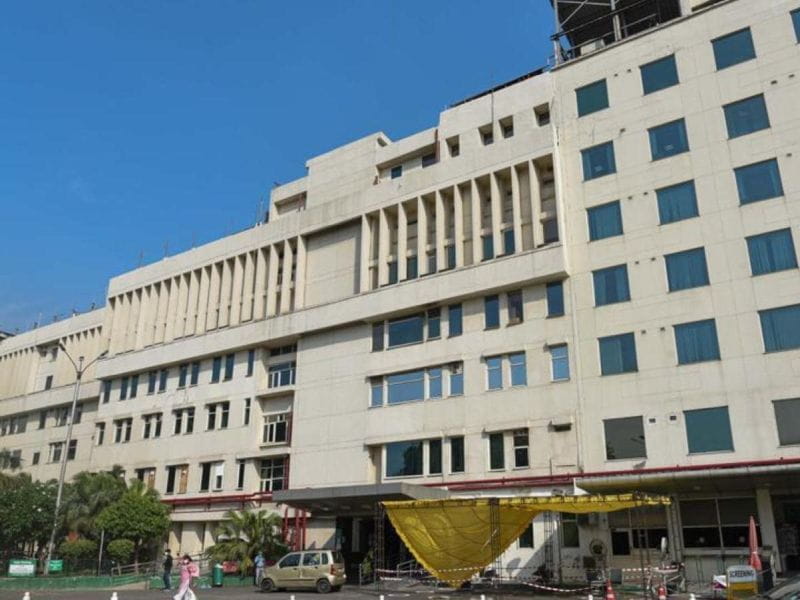
Sir Ganga Ram Hospital (SGRH) in New Delhi is one of India’s leading heart transplantation and cardiac care hospitals. It came into existence in 1921 and is one of the premier medical facilities in India.
The hospital has a group of highly experienced doctors, surgeons, and cardiologists dedicated to offering their patients the best cardiac care. The hospital has a well-equipped cardiac care unit. It provides various services such as coronary angioplasty, open-heart surgery, bypass surgery, heart transplants, and minimally invasive heart surgery.
The hospital has achieved several milestones in the field of cardiac care. It was one of the hospitals in India to perform a successful heart transplant in 2002. Since then, the hospital has performed around 100 heart transplants with a success rate of over 95%. It has also established India’s first Pediatric Cardiac Surgery Centre and the first Cardiac Catheterization Laboratory in the country.
The NABH has also recognized the hospital’s excellence in cardiac care. It is also one of the hospitals in India to be certified by the Joint Commission International (JCI).
The hospital has also won many awards for its excellence in healthcare, including the prestigious Indian Medical Association Award for Excellence in Healthcare. The National Accreditation Board has also awarded the hospital the International Quality Certificate for Hospitals and Healthcare Providers. The hospital is committed to providing excellent cardiac care and strives to provide safe and effective treatment for all its patients.
10) BLK Super Speciality Hospital, New Delhi
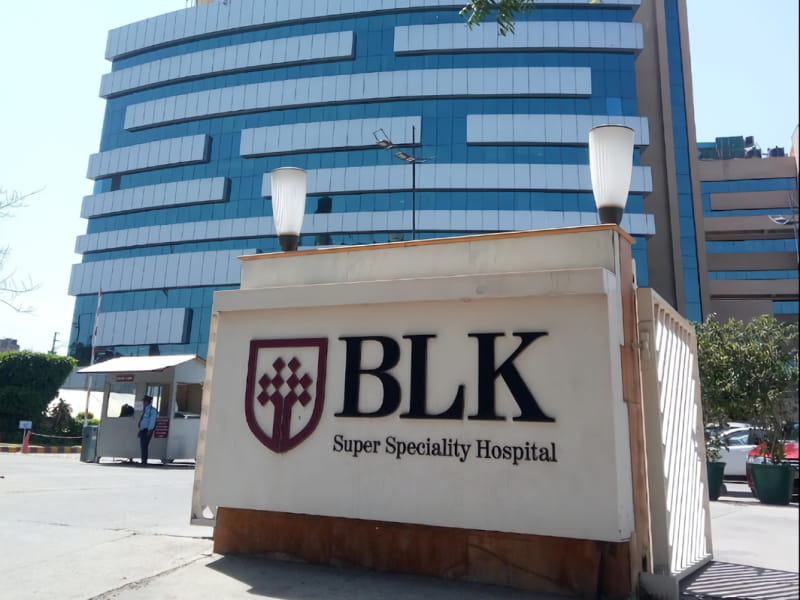
BLK Super Speciality Hospital, New Delhi, is one of India’s most advanced and leading super specialty hospitals. It is a 1000-bedded multi-specialty hospital providing comprehensive and advanced medical treatments across specialties. It is a Centre of Excellence in Cardiac Sciences, Orthopaedics, Renal Sciences, Neuroscience, Gastroenterology, Urology, and Oncology.
The hospital has a state-of-the-art Cardiac Sciences Institute, known as the BLK Heart Institute, one of India’s best centers for heart transplants. The institute has highly qualified and skilled cardiac surgeons, cardiologists, and anesthetists. BLK Heart Institute has performed more than 300 successful heart transplants, a record for any hospital.
Apart from heart transplant services, BLK Super Speciality Hospital has achieved much recognition in the field of medical sciences. In North India, it was the first to offer robotic surgery for urological procedures, the first to introduce the da Vinci robotic system in India, and the first to introduce the Total Artificial Heart (TAH) in India. It is also the first hospital to perform a successful minimally invasive bypass surgery.
BLK Super Speciality Hospital is committed to providing its patients with the best medical care and has received several recognitions and awards over the years. It has been ranked among the 5 best hospitals in India by the Week Magazine and was listed as one of the most trusted hospitals in India by The Economic Times.
Conclusion
In conclusion, heart transplantation in India has made significant progress in recent years, with success rates comparable to international standards. The cost of heart transplants in India is relatively more affordable than in many other countries, making it an attractive choice for domestic and international patients.
India’s best hospitals for heart transplants are equipped with state-of-the-art facilities, advanced technology, and highly skilled cardiac surgeons. These hospitals provide comprehensive post-operative care, including immunosuppressive therapy and regular follow-ups, ensuring better outcomes for patients.
However, challenges such as organ availability, lack of awareness about organ donation, and regional disparities in access to advanced medical facilities and skilled surgeons persist. To further improve the success rate of heart transplants in India, addressing these challenges by increasing organ donation awareness, bridging regional disparities, and continuing to invest in medical technology and infrastructure is essential.
In summary, India has emerged as a promising destination for heart transplant procedures, offering high success rates, cost-effective treatment, and access to some of the best hospitals and cardiac surgeons. By addressing the existing challenges, India can continue to enhance its position as a leading medical hub for heart transplantation and provide life-saving treatment to patients in need.
In India, crowdfunding platform has become increasingly popular to cover the high cost of heart transplants. Heart transplants are costly in India, and many people cannot afford them on their own. Crowdfunding allows people to raise money for a particular medical or personal cause. Through a crowdfunding platform, donors can donate money to an individual or organization in need, providing a financial cushion for those struggling to cover the cost of a heart transplant.
These platforms also provide a space for individuals to share their stories and experiences, which can help raise awareness of the financial burden associated with a heart transplant and create a platform for support from the public. By using crowdfunding platforms, people can access more resources and potentially save a life.












